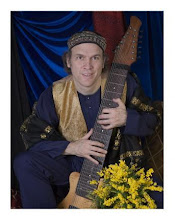Very interesting post by a Muslim woman can be found here Some quotes from it below.
To understand Islam’s treatment of women, one needs to understand the condition of the world prior to the advent of Islam. Pre-Islam, women in Arabia were considered the property of men and lacked basic human rights. A man could marry as many women as he desired and upon his death, they became part of his estate for his heirs. Women could be inherited, sold, traded for gambling debts, and abandoned at will. They had no rights or position of their own and female infanticide was widely practiced. It was into this environment that the Holy Prophet (pboh) introduced a religion that was revolutionary for its time. He taught kindness, charity and humanity towards women. Almost overnight, women were endowed with equal rights and put on the same level as men elevating their spiritual, educational, economic and social status....
The Holy Prophet Muhammad (pboh) said, “It is the duty of every Muslim man and woman to acquire knowledge.” He exhorted men and women to seek knowledge “from cradle to grave” even “if you have to go to China.” He also said that, “a man who has 3 daughters and brings them up and educates them to the best of his capacity shall be entitled to Paradise.” Any Muslim country that forbids a woman from seeking an education is totally unIslamic....
Other traditions of the Prophet (pboh) indicate that women would pose questions to him directly and offer their opinions concerning religion, economics and social matters. He designated his wife, Aisha, a religious authority when he stated that “You can learn half of your religion from Aisha.” She played a visible and active role in the political, legal and scholastic activities of the Muslim community and passed on knowledge of the Qur’an and the prophet’s sayings and practices to later generations of Muslims. She narrated 2,210tradions of the Prophet and scholars have noted that ¼ of the norms of Shari’ah law were also narrated by her.” (The treatment of women).
It may surprise you to know that the oldest academic degree-granting university existing today, the University of Karaouine or Al-Qarawiyyin, was founded in present day Tunisia in 859 by a Muslim woman, Fatima al-Fihri. In the United States, the first endowed institution for the education of girls did not open its doors until 1821 and most universities did not even admit women until the 20th century (Century of Struggle).
As modern as Islam’s teachings were regarding the education of women, its teachings on their economic status were truly revolutionary. Over 1400 years ago, Islam gave women the right to earn money, to own property, to enter into legal contracts and to manage of their assets in any way they pleased. A woman could run her own business and no one had any claim on her earnings or property including her husband. The Prophet’s wife, Khadija, ran a successful trading company before and after she married the Prophet. Women are allowed to work in Islam but their earnings belong to them and can only be used by the husband upon her permission. A married woman in Islam retained her independent legal personality and her family name.
Compare this to English Common law, which held that all the real property at the time of a woman’s marriage became the property of her husband. Married women in Europe & the U.S. did not achieve the right to enter contracts and own property until as late as the 19th century (Century of Struggle). According to English Common Law: “All real property which a wife held at the time of marriage became the possession of her husband. He was entitled to the rent from the land and to any profit that might be made. As to her personal property, the husband’s power was complete. He had the right to spend as he saw fit.”
Monday, June 28, 2010
Subscribe to:
Post Comments (Atom)

"The Prophet’s wife, Khadija, ran a successful trading company before and after she married the Prophet."-----I think it is great that "myths" about Islam are dispelled and I can applaud that---but the above statement may have been unintentionally careless----It is true that Khadija bint Quwalid was a sucessful trader--but this was BEFORE Islam. Muhammed(pbuh) became a Prophet at the age of 40 (he married at around the age of 25---his wife was approx 15 years his senior)
ReplyDeleteTrue, but there is nothing in the Koran or the Hadith that condemns her participation in the business world, or says she should have stayed home and raised a family. And I believe there was some overlap between prophethood and marriage to Khadija. In fact, I believe she was the one who encouraged Muhammad to take seriously the messages he was receiving
ReplyDeleteYou are right.
ReplyDeletethe Quran encourages/assumes the full participation of men and women in both worldly and spiritual affairs.